|
It has been said that advocacy is not a spectator sport. If you want to be heard on a topic, you have to be willing to get down on the field of play, get dirty and take some hits. Many of us have learned this the hard way. We have also learned how common it is for people to focus on the messenger instead of focusing on why the message is necessary in the first place. Even the most diplomatic of advocacy can make people uncomfortable because it challenges the status quo which most of us have grown accustomed to. It has also been said that the media is the most powerful entity on Earth because it controls the minds of the masses (Malcolm X). My own experience with the media as it relates to animal welfare advocacy has been a mixed bag. I have found some media outlets and journalists to be incredibly professional and entirely focused on neutral reporting which serves a public purpose and educates the public. I have found that other media outlets and journalists are not at all focused on neutral reporting, almost as if they are afraid to speak out on matters they know may be unpopular. Their bias is demonstrated in how they report on facts either in unexpected ways or incomplete ways. When it comes to how tax dollars are spent, some media outlets have no issue reporting on pot holes in the road or citizen complaints about law enforcement. But reporting on how animal shelters function? That's a whole different topic which seems to be off limits for some reason. There has been a lot of media coverage in my state recently regarding activities at and by the Greater Birmingham Humane Society which fought for and then obtained municipal animal control and sheltering contracts in early 2015. The public perception of the organization and the behavior of the organization as a whole do not always match. When advocates expressed concern about the organization's own statistics and regarding some behavior, many of those advocates received "cease and desist" letters essentially threatening to sue them. I find that to be a bullying tactic which does not speak well to the true goals of any organization which purports to be focused on the lives of animals and needs public support to do a good job. I fully expect that upon learning of public critiicsm for how tax dollars are spent, an organization would first initiate at least some type of discussion toward resolving conflict or clearing up communication issues. There has been some local media coverage regarding what is going on with the Greater Birmingham Humane Society regarding the volume of animals being euthanized and reports from former employees, volunteers and fosters. I have honestly found it lacking to date. I am told another media outlet is working on an investigative report. Time will tell how deep the story goes or if is is more surface reporting which doesn't closely examine the issues. One of the people speaking out in Birmingham is Phil Doster, a long time contact of mine. I had hoped that Phil's comments would end up being reported locally. Since they have not, I offered my website as a platform for Phil. Phil is down on the field of play and is getting dirty, knowing full well that many people in his area will be made uncomfortable by his words. I hope you take inspiration from Phil, that you speak your personal truth in your efforts to help animals and that you stand your ground when people try to bully you. The First Amendment is a powerful tool, but we have to have the courage to use it. So I've been asked my feelings about the Greater Birmingham Humane Society and current leadership, and when I tried to prepare a fair, but critical response, the overwhelming response was that it is not sensational enough. That was never my intent in writing about my experience. I expect us to hold non-profits, especially those with an executive that makes over $160k annually as a base salary, to a high standard of integrity and responsibility. Furthermore, and forgotten in a lot of the conversation, is the fact that it is extremely painful and difficult for former staff to step forward and talk about how they were treated. Many are sensitive and compassionate people who were treated with incredible disrespect and tossed aside when they were no longer useful to specific executives. Below is my experience. You can dislike it if you'd like, but I ask that you consider the people and animals in the shelter, as well as the community that this charity is intended to help. (images courtesy of Phil Doster)
0 Comments
Americans consider themselves animal friendly. In a national poll, 96 percent of Americans said we have a moral duty to protect animals and we should have strong laws to do so. An AP-Petside Poll from a few years back revealed that three out of four Americans believe it should be illegal for shelters to kill animals if those animals are not suffering. These social attitudes are indicators of our cultural values, at least when it comes to general attitudes about animals and how our nation’s animal shelters operate. There is, quite unfortunately, a great divide between our social values and how many animal shelters function using our tax dollars and donations. People want animals to be protected and don’t want shelters to destroy animals needlessly, but that is what is happening in the majority of our shelters in all but the most progressive of communities. As Nathan Winograd (the Director of the No Kill Advocacy Center) once said, if we had never killed animals in our shelters and we suddenly decided to do that, people would be outraged. The fact that it has happened for so long has made many of us resigned to the death, as if it is a foregone conclusion. It is not. The good news is that things are beginning to change. With each passing month and year, the list of places where healthy and treatable animals are no longer at risk in shelters continues to grow. Success is now leading to success. Each time a new community adopts No Kill philosophies and ends the needless destruction of savable pets, other communities in the area and the region see the example and say, “we want that.” In places where municipal officials and shelter leadership do not voluntarily make changes to operate shelters consistent with public values, more and more advocates are stepping up and speaking out to demand that changes be made. Some of these advocates do so in spite of great personal risk and threats by shelter leadership to sue them for having the audacity to speak out. They speak out so they can live with themselves. When my No Kill Huntsville advocacy group was speaking out to end the destruction of healthy and treatable animals at the local municipal animal shelter, some of the most vocal opposition to our efforts came from some surprising sources. Not only were some shelter employees opposed to our advocacy, we also faced some incredibly hostile opposition from shelter volunteers and supporters, in addition to local rescue group leaders. These are people who would tell you that they feel strongly about helping animals and making good decisions for animals. Rather than consider why our advocacy was necessary in the first place, they expended an incredible amount of energy engaging in personal attacks and defamatory behavior on social media. It was both obstructionist and unproductive. I have seen this same behavior recently related to the Greater Birmingham Humane Society which fought for and then obtained the municipal animal control and shelter contracts in Alabama. I will likely never understand why a nonprofit organization would seek so much work and take on so many animals, resulting in the deaths of large numbers of those animals. Much like happened in Huntsville during what we call the “difficult years,” people in the Birmingham area are now speaking out in support of the organization even though they have been told (and shown) that the majority of the animals taken in are destroyed in all but some months of the year. There are countless people who have supported the organization so long that it is apparently inconceivable to them that animals are being destroyed needlessly. All of this strange behavior by people who consider themselves champions for animals and animal welfare got me thinking about a concept you may have heard of before: cognitive dissonance. In 1957 Psychologist Leon Festinger proposed a theory of cognitive dissonance centered on how people try to reach internal consistency. His theory states that cognitive dissonance is created when we have attitudes, beliefs and behaviors which are in conflict with each other. We naturally feel compelled to have our thoughts consistent and when they are not, it can cause us negative physical tension which can actually be physically uncomfortable. Common examples are when a person knows that smoking is unhealthy but that person still smokes or when a person knows that driving a vehicle which hurts the environment is bad, but still drives that same vehicle. We know it is a fairly common occurrence for animal shelters to destroy healthy and treatable animals even though doing so is not consistent with public values or current social norms. The reasons this happen are many (and this no longer happens in Huntsville for the most part). My interest is in people who either volunteer in or otherwise support animal shelters which destroy healthy and treatable animals. As hostile as some have been toward me, I recognize that they are all people who either love or care about animals and they are very passionate about it. In spite of this, they often defend the destruction of healthy and treatable animals and in some cases do so with a great deal of hostility, as if they are being personally attacked. Although they would tell us that they don’t think healthy and treatable animals should be destroyed, they are very defensive of the fact that it happens every day Cognitive dissonance theory states that we routinely resolve the conflict in one of four ways: 1) we change one of the thoughts to alleviate the conflict; 2) we change our behavior to alleviate the conflict; 3) we add new thoughts to rationalize our behavior; or 4) we trivialize the inconsistency.
As it applies to people who defend the destruction of healthy and treatable animals in shelters, an example of how cognitive dissonance works goes like this- Belief: healthy and treatable animals should not be destroyed in shelters is in conflict with Behavior: I support a shelter that destroys healthy and treatable animals Method 1 Change a belief - the shelter I support has no choice but to destroy healthy and treatable animals Method 2 Change behavior - I will not support the shelter because it destroys healthy and treatable animals Method 3 - Add new thoughts to rationalize - the shelter I support destroys healthy and treatable animals because the public will not spay/neuter, there are too many breeders and the public is irresponsible AND I know that the people who work at the shelter I support are good people who don’t want to destroy animals and are doing the best they can Method 4 - Trivialize the inconsistency - this happens across the country and there really isn’t any way to change it The methods I see used most often to alleviate dissonance are adding new thoughts and trivializing the inconsistency. It is easy to come up with a list of reasons to rationalize the destruction of animals who either were, or could have been, someone’s beloved pet who ends up in a shelter due to circumstances beyond the control of the people who love that animal and may be looking for that animal. It is also easy to just throw our hands up in the air, say the problem is too big to be overcome and we just need to live with the fact that it can’t be stopped. The example I gave above is just the tip of the iceberg. I have heard countless excuses from shelter supporters in defense of the killing of healthy and treatable pets and at the end of they day, they are just that: excuses. If you currently lead or manage an animal shelter where healthy and treatable animals are destroyed, I challenge you to take immediate action to stop what you are doing. The methods being used across the country to save shelter animals have been known for about two decades. No shelter is an island. If you want to stop destroying savable animals you need only educate yourself about No Kill philosophies and then network with other shelters who can help you learn from their successes. If you refuse to do at least that, and do it with a sense of urgency, I encourage you to find another occupation. If you currently work at an animal shelter where healthy and treatable animals are destroyed and you feel you have no control over that, please do all you can to try to use your influence to get the shelter leadership to network with No Kill facilities or communities in order to learn new ways to keep animals alive. If you are not willing to do that, you may very well find that your life will become incredibly difficult as you try to reconcile your personal beliefs with what happens at work every day you are there. We all decide what we will and will not tolerate in our working environments. If you currently support an animal shelter where healthy and treatable animals are destroyed, please ask yourself why you tolerate that. As uncomfortable as it may make you to read these words - your silence is your consent. Consider becoming a positive influence for change to try to get the shelter to embrace proven programs being used across the country to save the lives of shelter animals. One of the worst things you can do as someone who cares about the well-being of companion animals is to enable the killing or be an apologist for the killing. The very worst thing you can do it to engage in obstructionist behavior to prevent shelter reform. Doing so only puts the lives of more animals at risk. A time will come when all animal shelters in America are No Kill shelters and the practice of killing healthy and treatable animals is simply part of our shameful past. It’s time to lead, follow or get out of the way. 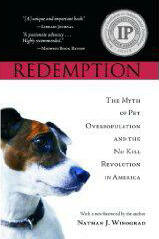 Some recent events regarding my animal shelter reform advocacy have led me back to the book which was a game changer for me. Redemption: The Myth of Pet Overpopulation and the No Kill Revolution in America by Nathan Winograd. The book was first published in 2007 (and has since been made into a documentary film). It changed my life when I read it in 2008 and learned about not only the history of the animal welfare movement (which began with Henry Bergh) but also about this wonderful thing called the No Kill equation. My copy looks like a used textbook with worn covers and highlighting. Nathan did not “invent” the No Kill programs and concepts so many of us live by today. What he did do was to analyze them and then present them in equation form for the very first time. He essentially created what I consider a blueprint for No Kill success in any place in the country. And therein lies the genius of the equation; we do not need Nathan Winograd to come to each of our communities and rescue us from ourselves. We need only learn about the No Kill equation, evaluate our existing resources and challenges, connect with those how have used the equation before us (in order to learn from their successes and mistakes) and then mold and shape the equation to fit the needs of the community. I believe in the equation because I know it works. I know people who are using it at this very minute and are saving the lives of countless animals in the process. In spite of the success of the programs and services of the equation, opposition still abounds. I should no longer be surprised by the toxicity of the opposition, but I am. As Nathan has said before, this is not just some clash of egos. People who either promote or oppose No Kill concepts and programs can’t just get in a room together and talk and hug it out and all just get along. While those who promote No Kill as an ideal and as a cultural norm champion saving lives, those who oppose No Kill as an ideal (or even say it is not possible, ala “the world is flat”) champion the status quo and do so at an incredibly high cost. Which leads me back to my point about Redemption. The afterword in the book talks about four groups of people who will oppose the concepts presented in the book. The observations about those groups are as relevant today as they were when Nathan wrote about them so many years ago and I’d like to share them with you, with Nathan’s permission, of course. Do you recognize any of this behavior? - The first group will agree with the message, be sympathetic to the cause, and want the same goal. Nonetheless, they will claim it ignores the success of others and focuses too much attention on San Francisco and later Tompkins County, communities in which [Nathan] played a significant role in drastically increasing the live release rate for shelter animals. (Making this observation more current, the first group will say that Austin, Texas, had to spend a lot of money [when in fact it became No Kill with no initial cost output)] that Huntsville, Alabama is "different" because of the progressive and diverse nature of the community, that there is no one on Earth quite like Doug Rae in Fremont County, Colorado and that compassionate leaders like him are hard to come by or that there must be something magical in the water in Lake County, Florida for it to become a No Kill community virtually overnight. - The second group that will take issue with the book are the animal activists who are intent on doing what they have always done, regardless of the facts. They will continue to blame the public and fight for more and tougher laws-once again buying into the false paradigm of pet overpopulation and public irresponsibility. They will argue that their community is different and that citizens in their community are particularly irresponsible. The evidence clearly shows that none of this is true. What is true is that shelters are filled with animals, in no small part because of a small segment of the public's throwaway attitudes about their pets. But that is why shelters exist in the first place. They are supposed to be the safety net for animals the same way orphanages and child protective services are the safety net for parentless and abused children. While people surrender animals to shelters it is the shelters that kill them, and one does not necessarily follow or excuse the other. -The third group of critics of the book will be the shelter directors themselves - those who are involved in the killing of [millions] of dogs and cats a year and who erroneously claim that doing so is both necessary and proper. They will see this book as nothing more than a personal attack. They will argue that we should all get along, not fight each other, and focus on our common enemy-the irresponsible public which fills shelters with discarded animals. This point of view is nothing more than a smokescreen and is contradicted by the facts.
-The fourth and final group of people who will criticize the book are a group I collectively call “the naysayers.” The naysayers are those who have a predetermined agenda of support for animal control, regardless of how many animals the local shelter kills or how otherwise dysfunctional the agency is. They cannot be swayed by logic, facts or alternative points of view. They seek out that which fits their beliefs and reject everything else to the point of taking facts out of context - and in some cases, making up “facts” - to fit the story. It is incredibly unfortunate that so many people expend so much time and energy fighting against programs which have been proven to save lives when fully implemented. Some of the most vocal and toxic opposition to animal shelter reform comes from people who claim to advocate for animals - which seems completely illogical. Because it is. I never cease to be amazed that people view free speech seeking better for shelter animals as "bashing" or an "attack." It is neither when it is done respectfully, diplomatically and it is focused on accountability and leadership (as opposed to being focused on specific people). As I have written before, a time will come when we no longer destroy savable pets in America. When that fine day comes, will you look back and know that you championed life? Or will you look back and regret all those hours and days and weeks and months you spent defending the killing because you were more focused on people than on animals? Or worse yet, because you would not speak your personal truth to save innocents when that is what the situation demanded of you. 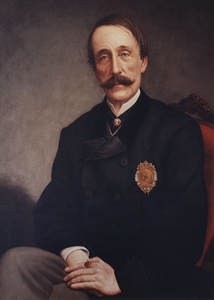 I have always considered myself an animal person. I grew up in an animal integrated household and my siblings and I were taught from an early age that all life has value. We always had rescued pets in our house and some years we had many of them. For much of my adult life, I considered myself fairly well educated on general animal issues. Like most people, however, I lived inside the bubble of my own reality. It wasn't until 2006 after we had our dog euthanized to prevent her from suffering that I had a personal epiphany about what happens in our nation's animal “shelters” using our money and for which we are blamed: the killing of millions of healthy and treatable animals. When Nathan Winograd published his ground breaking and controversial book in 2007, I was further changed. I still consider “Redemption: The Myth of Pet Overpopulation and the No Kill Revolution in America” to be compulsory reading for any animal welfare advocate. The content is just as valid today as it was ten years ago. As I have said before, Nathan did not “invent” the animal protection movement or even the No Kill movement as we know it today. That process began more than 100 years ago with Henry Bergh who founded what we now refer to as the American Society for the Protection of Animals. If you have not seen the documentary film which is based on Redemption, I really encourage you to watch it. Much like the book, the film is as much a history lesson as anything and it helps you understand how we got from a time in 1866 when Bergh was changing hearts and minds regarding compassion toward animals to our present reality of killing millions of animals. We kill far fewer shelter animals now that we did a few decades ago, but millions are still at risk each year and thousands die each day using our money. Since the time I became a No Kill advocate years ago, my views on the subject have really not changed at all. I think it is unethical for us to house animals in places we call shelters and then use tax dollars and donations to destroy healthy and treatable animals. As Nathan Winograd once pointed out, if we had never killed animals in our nation's shelters, but we started doing it today, what would people say? There would be incredible outrage for sure. The public would speak out en masse and the killing would stop. It is incredibly unfortunate that many in our society somehow tolerate or forgive the killing just because it has been going on for so long that people think there is no other way. We have been told so many times that the killing is due to a “pet overpopulation” problem that we don't question it. Animals don't die in shelters because of pet overpopulation. They die in shelters which are overpopulated with pets because the shelters have failed to embrace the very programs of the No Kill Equation set forth in Redemption more than ten years ago (and which have been known for much longer than that) to stop the archaic and outdated practice. For No Kill advocates, ending the killing of shelter pets is like drawing a line in the sand. You draw that line and then you do not cross it. You do not go back to the old ways no matter what. I have stood the line to end shelter killing for over a decade. I have stood that line along with contacts of mine from across the country too numerous to name. We are the animal welfare advocates in the weeds of grassroots reform and we speak with one voice, for the most part, as we seek to end shelter killing. Most of us promote the No Kill Equation because it can be molded and shaped to fit the resources of any community and because it has been proven to work in every place where it has been comprehensively implemented. Some of us promote the same programs of the equation even if we do not refer to it using the same terminology. We seek a time when the needless killing of pets in our shelters ends and we seek it with a sense of urgency. We all promote diplomacy in communities with regressive shelters which are still destroying animals needlessly. Although there is no polite way to say, “please stop killing animals,” we have always encouraged people to do what we call “the ask” first in an effort to gain the cooperation of shelter leadership and municipal officials toward changing the culture in shelters as a first option. There is truly no point in expending energy on what amounts to political advocacy if it's not necessary. In my own case, I wish the ask had worked. The path taken would have been much faster and much smoother if everyone could have cooperated from the start. The ask was denied and this led to years and years of struggle in which far too much energy was spent defending the continued killing when that same energy could have been used to stop it. There was a recent exchange on the social media page for an organization called No Kill Movement, of which I am a member. I, and other members of the organization, were referred to as a “radical wing” of No Kill shelter reform. At first I was confused by this and then I kind of laughed. Now I find myself both amused and annoyed. There is nothing radical about the No Kill philosophies I promote. And I have not changed in that regard in a decade. I would actually argue that I have become more tolerant and more diplomatic in how I interact with municipal officials and shelter officials because I have learned over the years which tactics work better than others in efforts to gain cooperation faster and I do volunteer work for animal control agencies which I support. So, what changed? While I, and other like me, have remained in place, standing the line, it is those around us who have changed. While we have continued to stay on topic and promote philosophies which bring an end to shelter killing now and not years from now, others around us have seemingly decided that it is more important to focus on planning and not offending anyone than it is to stop killing animals right now. Kindness is given a premium over urgency to save lives. One woman who proclaims herself an animal advocate stated that she “learned that what's effective in creating change is to get as many people as possible on board -- including city leaders, local organizations, and the public. There are situations where 'calling out' may be important, but in most cases the fastest progress is made by cooperation.” I'm glad that is her experience. Unfortunately, it is not mine and it is not the experience of most of the advocates with whom I interact. It would be wonderful if every community which operates a shelter where healthy and treatable animals are destroyed would stop doing that as a result of being asked to stop and through cooperative efforts which are free of drama, defensiveness and opposition. I hope that as more time goes by and No Kill becomes the norm in more places, community leaders will work to get ahead of this issue without having to be asked at all. Advocacy is hard work and I would like nothing more than for that work to not be required at all. Dare to dream.
In the meantime, call me a radical. Fine with me. Call me divisive. I don't agree with that, but that is your choice. I will instead call myself principled and committed to the same goals and standards I have been for the last decade. I still stand the line. And I am proud to do it with others like me who are working hard to help change our society using grassroots advocacy. As Margaret Mead so aptly said, “never doubt that a small group of thoughtful, committed citizens can change the world; indeed, it's the only thing that ever has.” Exactly. A large animal welfare organization held its annual conference recently. One of the sessions in the conference was called “Language Matters.” I was not in attendance, but I have heard from contacts who were there that much of the session related to use of the phrase “No Kill” to describe an animal sheltering philosophy. I have written before about the phrase No Kill and about the word “euthanasia” as it applies to ending the lives of shelter animals in terms of what those words mean to me. Following the conference, I engaged in multiple communications with other people across the country in which the word “attack” was used to describe my behavior and that of other animal welfare advocates. Use of that word to describe my own advocacy and behavior is completely misplaced. I have never personally attacked anyone regarding my beliefs about animals and how they should be treated. I have been critical of the behavior of some people and plan to continue to do just that for the sake of animals who cannot speak for themselves. I once prepared an open records act letter seeking copies of shelter statistics and the letter was described as a personal attack. It was not. It was a request for public records, plain and simple. The fact that the recipient of the letter chose to take it personally, as opposed a request for records created in the course of running her city department, is something completely beyond my control. These communications did get me thinking about use of some of the key words we hear in animal welfare advocacy circles and how some words are used correctly (or incorrectly) to describe behavior. I am not a language expert. I do think that words are important. In theory, they should represent easily understood concepts and have somewhat universal meanings. I realize that is not always the case, of course. For what it’s worth, these are some of the key words and phrases I use in my own advocacy and what they mean (or do not mean) to me. Advocacy is a noun which describes the act of the act of pleading for, supporting, or recommending something. Animal welfare advocacy relates to actions taken or philosophies promoted which relate to animal welfare. Attack is a verb with many meanings. As a verb, it means to behave in a forceful, violent, hostile or aggressive way, to begin hostilities against or to blame or abuse violently or bitterly or to try to destroy. It is not an attack to recommend or suggest that municipalities use tax dollars and donations in ways which are consistent with public values. It is also not an attack to opine that animal welfare organizations which take in millions of dollars each year spend some of those funds in ways which actually benefit animals in our cities, counties and states in a "ground level" type of manner. Criticize is a verb which means to find fault with, to judge or to discuss the merits and faults of something or someone. It is entirely possible to criticize a person or organization while still either holding that person or organization in high regard or while still having many positive views about that person or organization. Constructive criticism is an adjective which means providing criticism to help improve, promote further development or promote further advancement. It is constructive because it is intended to creative positive results, as opposed to being destructive. Criticizing an organization or providing constructive criticism about an organization is not an attack. It is communication intended to convey information about how operations or systems can be improved, particularly as it relates to how public funds are used for municipal purposes. Euthanasia is the act or practice of killing or permitting the death of hopelessly sick or injured individuals (such as persons or domestic animals) in a relatively painless way for reasons of mercy. When healthy and treatable animals are destroyed in animal shelters, that is not euthanasia. It is killing them or destroying them. To use the word euthanasia to describe ending the life of a healthy and treatable animal should be offensive to anyone who has ever had a beloved pet euthanized to prevent suffering. The two acts have nothing at all in common. Kill is a verb which means to cause the death of a person, animal or other living thing. When the lives of healthy and treatable shelter pets are ended, they are killed. Having said that, I have never called the people who end those lives as killers or murderers. To do so is inflammatory and serves no real purpose in terms of seeking and end to that behavior. Municipal accountability is as a general principle which means that governments (including municipalities) are answerable to the public and responsible for their actions, decisions and policies. Every municipality is subject to both criticism and constructive criticism by the public it serves for the manner in which it governs and in which it makes use of public funds. No Kill is a phrase which refers to an animal sheltering philosophy in which healthy and treatable animals are not killed for space or convenience using our tax dollars or donations. It does not mean never kill. In the No Kill philosophy, animals who are suffering or who are irremediably ill are euthanized for reasons of mercy. Dogs who are genuinely dangerous and who pose a public safety risk (as opposed to dogs who are scared, traumatized or undersocialized) are also destroyed when no rehabilitation or sanctuary placement is available. Some say that use of the phrase No Kill is divisive or offensive. I find it no more divisive or offensive than the killing of healthy and treatable pets who either were or could have been someone's beloved pet. The phrase is on the public radar already. More and more people now know what it means. In the community where I work, people know that No Kill means that animals in our shelter are not at risk of being needlessly destroyed. This is a culture they want. There is nothing at all divisive about use of the phrase to describe a geographic safe haven for shelter animals. A puppy mill is a commercial farming operation in which purebred dogs are raised in large numbers. Smith v. Humane Society of the United States, 519 S.W. 3D 789, 801 (2017). I have been told by some that use of the phrase puppy mill is so offensive to some dog breeders that they equate it with a racial slur. I say that to take a description of a business operation and try to compare it to discriminatory words related to race is not only misplaced, but is surely offensive to those races which have been slandered through the use of slurs. A mill is an operation which has volume output, whether it is a paper mill, a textile mill, a cotton mill or a puppy mill.
Shelter is a noun used to describe something that covers or affords protection. Although the word shelter is often used to describe buildings in which animals are housed, many of those places are actually holding facilities or disposal facilities and do not deserve to be called shelters at all. A true shelter is a save haven for pets which 1) treats them as individuals whose lives all have meaning; and 2) which treats them either as someone's beloved pet or being capable of being someone's beloved pet. The events of this last week which took place in Charlottesville, Virginia, have left most people angry, upset and outraged. We have all seen the video clips and images of the rally and counter-protest which led to the death of one woman and two state troopers and left 19 others injured. I watched along with everyone else and felt a profound sense of sadness as I wondered what happened to bring our country to this level of hate and outrage. On Monday night, I received an email from a No Kill contact in Texas. He wrote to warn me that a common contact of ours who led a non-profit organization had been "outed" as having been present at the white nationalist rally. I thanked him for telling me, but didn’t take any steps to look into it. My first reaction was that surely this was a case of mistaken identity. I told myself I would look into on Tuesday morning. As I watched the evening news, I heard a news story about people being "outed" on Facebook using video clips and images of the rally and violence. The story reported that people were being encouraged to call out those people who attended in support of the "Unite The Right" rally if they saw images or video clips of people they knew. I was sure that there was some error. Surely no one I know would attend a rally in support of bigotry, separation, discrimination and separation. I was wrong. Most of us interact with people in our lives with whom we do not share they same political beliefs. That truth has been no more evident in my life than in the last year. The political divisions in our country are wide. I keep my beliefs to myself for the most part. I know there are people with whom I have little in common in terms of my political positions and I tend to just stay in my own lane of travel and let other people do the same. There is a vast difference between having a general awareness that someone you know has vastly different political views than your own and having any concept at all that they would align themselves with groups of people whose values are both repugnant and intolerable to most of us. It was suggested to me that many of the people who attended the rally in Charlottesville did so in order to stand up for free speech and protect Constitutional rights. I firmly believe in the First Amendment right to free speech. I just draw a line personally when that speech is hate speech of the KKK, white supremacists and Neo-Natzis. I had no idea. 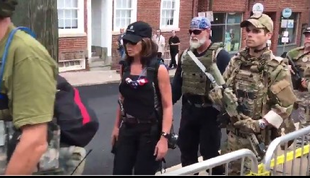 I have never met Debi Day, the founder of No Kill Nation, Inc. We have connected by email and on social media. We’ve interacted about No Kill philosophies and about issues related to breed bans of pit bull type dogs in Miami-Dade county and across the nation. I held her in high regard due to her commitment to advance No Kill philosophies to save the lives of shelter animals, much of which was shown through her financial support of No Kill Conferences and her financial support toward the production of the documentary film about the No Kill movement which was released in 2009. I was acquainted with her due to common interests, but I would not say that I really knew her. On Tuesday morning, August 15, 2017, I severed all ties with Debi and with No Kill Nation, Inc. I have absolutely zero tolerance for the behavior of any person who promotes, defends of enables voices of hate, bigotry and separation. I will not be associated with that behavior in any way. Period. The No Kill Nation website and Facebook page are now gone. I fully recognize that there are opponents of No Kill philosophies and opportunists who are using the revelations about Debi Day’s behavior and associations to try to taint the entire No Kill subject. There is really no discussion to be had on this topic. The No Kill movement is bigger than one person. It is bigger than Debi. It is bigger than me. To those who are trying to discredit a social movement the focus of which is saving the lives of animals, I say this: you are wasting your time. No Kill advocates across the country have already banded together to continue to speak with one voice to end the needless destruction of healthy and treatable animals in our nation’s shelters using tax dollars and donations even though many of us are grieving. If you are so incredibly outraged by Ms. Day’s behavior, as am I and are my peers, do something productive with that outrage. Get involved in our own community. Speak out for what you value in your own life. And speak out for the shelter animals who need you to be their voice. Saving lives is not a partisan issue at all and it has nothing at all to do with politics beyond holding municipalities accountable for how they spend our money. I stand in solidarity with other No Kill advocates across the country who have spoken out against Debi’s behavior and have severed ties with her. I stand for animals who need my help and for advocates who are working incredibly hard to bring about reform in their own communities. Think about what you stand for and then go do something about it. (rally image courtesy of the Richmond Times Dispatch)
I tend to write my blogs with some type of introductory wording to set the stage about the topic. Not this time. Today I want to talk about an organization called Target Zero, why I will not support or promote it under any circumstances and why I think the people involved with Target Zero should be ashamed for a new campaign they are promoting. Target Zero is a shelter consulting organization which markets itself as being qualified to help guide communities to get "to zero" regarding destruction of shelter animals. In some places, it offers these services for free, making the offer almost irresistible to municipal governments. From my perspective, this is a group of people who are backed by big money - and who may very well have good intentions - but who are simply not qualified to help any community become a true no kill community. I set out my experiences with and concerns about this group not quite a year ago in my blog called "Target Zero or Doing Zero?" I won't repeat myself here simply for the sake of emphasis. You can read my original blog to understand my position on the organization as it was in September of 2015. Since the time I wrote that piece, one of the original founders has left Target Zero and Target Zero has left Huntsville, Alabama (the city where I have spent 10 years seeking shelter reform). They have declared it an “alumni city” and have moved on seek new clients, all while using Huntsville as an example of their work. They have a video they use which references Huntsville and our shelter director routinely sings the praises of Target Zero in media interviews. But let’s get real for a minute: Huntsville is not a no kill community. Although there were a period of months when the live release rate exceeded 90% (what Target Zero considers “getting to zero”) that is not the measure of a no kill community. That number proved to be unsustainable in any event. There are now issues with dogs entering the building healthy and then getting sick and we have heard that local rescue organizations have become overwhelmed in their efforts to do too much with too little in order to improve the shelter statistics. We have remained silent for the most part about the fact that Target Zero is marketing off of Huntsville to get new clients. My personal thought is that me speaking out individually against Target Zero on my own is certainly not going to slow their efforts to seek new clients with the allure of "free" help. I don’t try to warn communities to not hire Target Zero simply because that could cause me to be sued for interference with a contractual relationship. No, thanks. I'm equally sure that those who manage the organization or support it blindly will label me a malcontent and treat this blog as some attempt to seek credit for change in Huntsville. No. This is not about credit. It is about reporting history accurately and not leaving out parts that don't fit the desired narrative which makes Target Zero look like the hero here. If the city had taken action to save animals on its own and after having learned about no kill programs in late 2008, our no kill coalition would not have been necessary in the first place. As the saying goes, “we didn’t start the fire.” We were always results-oriented and we still long for the day when our advocacy is simply not necessary. I'm sure that Target Zero did do some good in Huntsville. They were able to connect with the shelter director here in ways the members of my no kill coalition could not. We had tried to help her for years, only to be dismissed as naive and uninformed. Target Zero was able to get her attention due to who they are and because they have what I presume to be almost unlimited funding. By the time they arrived on the scene, the live release rate had gone from 34% to more than 70%, all without their involvement and after we took the no kill subject to the public and to a new city administrator. Change was already taking place. There will always be disagreement about what led to that change. I am absolutely certain that but for the advocacy of No Kill Huntsville nothing would have changed at all and the city would still be destroying the majority of the animals in the shelter while being answerable to no one. But back to my issue with Target Zero standing on the backs of the members of my coalition. The problem with Target Zero using Huntsville as a marketing tool is that they only tell part of the story - the part that makes it sound like they swept in to the community and saved us from ourselves. Hardly. What Target Zero fails to tell other places is that they were able to do some good in Huntsville because other advocates had already been fighting for change for years and had created a climate where even more change was possible. They quite literally jumped on the bandwagon of change and then declared themselves the reason for that change while making no mention at all of the unique factors in Huntsville which allowed that change to happen. Huntsville is in the rear view mirror of Target Zero now that they have moved on and the members of my coalition are left to continue our efforts to make this a no kill community.  I learned last week that Target Zero is promoting a new campaign called the “Lick My Face” campaign in which people are encouraged to have their dogs lick their faces. The front man for the campaign is David Duchovny, one of their donors. People have been encouraged to record a video of their dog licking their face. For each lick, Duchovny will donate one dollar to Target Zero. There is a new webpage set up just for this campaign (which I refuse to share) and there is even talk of a “Lick Off.” Really? I presume that Mr. Duchovny means well, but this is still a terrible, dangerous idea. For me, this campaign is simply further evidence that Target Zero is completely out of touch with the very shelters they claim to be qualified to advise. I guess it’s possible that some service animals are trained to lick the faces of the people they help in order to wake them. Aside from that, I can think of no circumstances under which it's a good idea to encourage a dog to lick someone's face. Dogs have teeth and dogs can get excited about food and treats. No one knows how many dogs end up in shelters due to biting incidents or due to perceived instances of aggression which were really not the fault of the dog at all and the result of something we did or failed to do. I think it is a uniquely terrible and uniformed idea to encourage people to participate in a campaign which not only promotes undesirable behavior in dogs but which could have the end result of more dogs being surrendered to shelters due to no fault of their own. There are a host of things Target Zero could have done to promote saving shelter animals and to promote the humane-canine bond. Walking. Playing. Reading. Anything but licking. Shame on Target Zero for this ill-advised campaign and shame on Target Zero for using Huntsville as a marketing tool. If anyone with Target Zero wishes to speak with me to try to convince me that the Lick My Face campaign is a stellar idea, please. Send me an email message. Tell me that you consulted with dog behaviorists and dog bite fatality experts and that you fully researched this whole idea before putting it out there for the nation to see. And if anyone with Target Zero feels I have misrepresented their role in helping Huntsville save more animals, please. Send me an email message and try to persuade me that I should see this situation differently. If I am wrong and have judged them too harshly, I will admit having done so.
When I first became an advocate and started doing volunteer work to help rescuers years ago, my presence was simply a Youtube channel. I stored my slideshow projects there and I still do, even though I have moved my voice to this website and to the other websites I manage related to my advocacy.
One of my early projects was a slideshow simply called "Find Me." I used a Fisher song which was unreleased at the time and which was written about the disappearance of Natalie Holloway. Although I have reworked a number of my slideshows over the years to keep them fresh, I have left Find Me as it was originally created. I put it together at a time when I was incredibly frustrated and exasperated and it is one of my darker projects. My thought now is that there is enough negativity "out there" related to issues about companion animals and I'm better off taking a more educational or positive approach. I know how I react when a commercial comes on TV for the APSCA or the HSUS. I just don't want to be seen in the same light. They can keep the doom and gloom approach and I'll try to reach people using other methods. One of the recurring frames in Find Me is the traditional see no evil, hear no evil speak no evil image which is ordinarily associated with the Three Wise Monkeys.
I was interacting with a contact of mine with No Kill Houston recently and she let me know she had been contacted by a filmmaker after reposting an old "rant" of mine about shelter volunteers who enable failed shelters through their silence or who otherwise defend the destruction of savable animals. The documentary film is called Silent Shelter and it is currently in production. What caught my attention about the film was not only the image which leads off the trailer, but also the subject of the film itself: the rights of volunteers who help in animal shelters related to their free speech.
I am the first to admit that I have very little tolerance for people who volunteer for or otherwise support shelters where healthy and treatable animals are destroyed. There are proven programs to end the killing and they have been known for about 15 years. My own advocacy has been made more difficult not only due to shelter leaders and employees mired in a dysfunctional system, but also by rescuers and volunteers who refuse to speak out about what is broken. Some of the most toxic opponents of my no kill advocacy have been rescuers and volunteers who spend their time defending the killing and enabling the process when common sense would dictate that they would work just as hard as I am to end the needless killing. I cannot count the number of times I have been told by volunteers that they essentially "go along to get along" so they won't be "cut off" from helping animals. I've never really understood that position at all. If you really want to help animals, then look further than X dog or Y cat to resolve the systemic issues which cause them to be destroyed in the first place. Your silence is, ultimately, your approval. In spite of my criticism for enablers and apologists, I know of numerous other people within the system who have spoken about about wrongs they have seen, heard and experienced only to be banned from a shelter or told they must sign some type of document saying they will not criticize the shelter. Is it this subject which is explored by the film and for that I am thankful. This subject has been covered by a lot of people a whole lot smarter than me so I won't go into detail on the issue here. The bottom line is that shelter volunteers and employees cannot be silenced because doing so violates the free speech provisions of our Constitution. I look forward to seeing the film. I hope you'll take a few minutes to watch the trailer. If you are a volunteer or employee at a shelter where bad things happen, I hope you will take some time to educate yourself on no kill philosophies and issues related to free speech. If you don't speak out for the welfare of animals in shelters, who will? Silent Shelter Trailer from Dana Keithly on Vimeo. I have heard many times over the years that if I would just _____________ (fill in the blank) my local animal shelter would be able to save more animals. I have been told to be more "nice" regarding my advocacy. I have been told that I should volunteer at my local animal shelter and it has been suggested that if I don't do that, I don't really care.
There are a lot of facets to my animal welfare advocacy. I manage multiple websites and I do volunteer work for a number of organizations, some of which are local and most of which are in other states. Most of my advocacy relates to my keyboard and my phone and I believe that I am making a difference in my own way. I do not volunteer at the animal shelter in the city where I work. I lack the time to do that and even if I had time, I just refuse to be in a building where healthy and treatable animals are still at risk. The shelter is doing much better than in years past, but savable animals still die there. I would no sooner volunteer there than I would work the line at a chicken processing plant. There is also the not-so-small issue of my history with the shelter director. She has made my life immeasurably more difficult than it otherwise should have been in the last decade due to her refusal to adopt progressive shelter programs on her own and without the necessity of advocates like me seeking change through years of boat rocking. Advocacy is hard work which is often infuriating and exhausting. And when we get right down to it, it should not have been necessary in the first place. If you ran a shelter where most of the animals died just because that was the way things had always been done and someone told you about better ways to save lives and do it quickly, wouldn't you move with a sense of urgency to do just that? Of course you would. The shelter director also thought it was a stellar idea to participate in a hate page related to me and my advocacy group on social media which led me to file a formal complaint about her conduct. We might as well be living on separate planets for all we have in common. But getting back to the "if you would just _________" argument, let's think about that. On the "you should be nicer" or the "can't we all just get along" argument, I simply disagree. As I have blogged about before, I really do not believe that the manner in which I ask a shelter to stop killing saving animals is relevant at all. I think it is sufficient to say, "please stop killing animals," "these methods will help you do that right away" and "these people can help you because they have proven experience. Please call them." When a house is on fire, no one stands outside debating how to save lives and stop the blaze in ways which won't offend anyone. The focus is on the task at hand. When people tell me that we should all just get along or that my method of communication is a bit too direct for them, I say stop putting the focus on the messenger and start focusing on the message. I am all for diplomacy and respect, keeping in mind that is a two way street. I also have no issue at all with conflict. I think I can disagree with someone on some issues and we can still find some common ground and work together toward the same destination. Moving on to the "if you would only volunteer" argument, that is also a deflection. Sure. I could volunteer at the shelter. But if just having more people to do work for the city is so important, there really are other options. Plans could easily be made to get help from our county jail by using inmate trusty labor or by having the court refer people to the shelter to fulfill community service obligations. Using inmate labor alone would be a huge help inside the shelter and there are a host of programs used across the country which have shown that this helps the inmates as much as it helps the animals. I would argue that me being in the shelter would actually be disruptive as long as savable animals are destroyed there. Unlike some volunteers who have decided that it is easier to go along to get along, I would not be silent about my beliefs. This is a moot point anyway since I refuse to be complicit in the killing and no amount of bullying will make me compromise my values. And the truth is that I do volunteer; just not at the local shelter I am criticizing. I choose to use my volunteerism for organizations which function consistent with my values and one of them is actually the animal control department of the county where I live. The key to any community becoming a no kill community is local leadership which makes saving lives an immediate priority now. Not a year from now or in 5 years but right this very minute. Once the leadership decides to stop the killing, that changes the entire landscape related to adoption, fosters, donors and potential volunteers. If you are in a community where there are advocates who are fighting for shelter reform and fighting to save the lives of animals and someone has told you that those advocates should just be nicer or should just stop talking and volunteer, take a good look at whether or not that makes any sense at all. Ask yourself what that would really accomplish. And then take a good look at why the advocacy is needed in the first place. People don't advocate for fun or because they have nothing better to do. People advocate for social change and they should not be made out to be the enemy for having the audacity to seek better for all of us. The burden of change is not mine to carry. You can stop telling me that if I would just be nicer or would just volunteer everything would change. No. Everything changes when those who are responsible for making life and death decisions regarding shelter animals choose life, take responsibility for what happens in their buildings and then invite the public they serve to be part of a new and better future. I am a self-professed keyboard animal welfare advocate. What that pretty much means is that most of my volunteerism to help animals is done using my laptop, my phone and my brain. I do "incidental rescue" when my husband and I come across animals needing our help, but I do not run a rescue group and I have never managed an animal shelter. I am not even a nonprofit because in all my years of advocacy, I just haven't found a good reason to seek that status and all that comes with it. I would much rather handle my own legal and administrative costs myself and have people make their donations in ways which help animals directly.
I work a full-time job as a timekeeper in the legal field which means that all of my time is accounted for and billed to clients. I commute to that job. I manage four websites, administer multiple social media pages, do video/slideshow projects for nonprofits across the country and do small task in my own area from flyers to networking for animals to helping with promotions and events. I lead a group of people who do TNR with a managed cat colony at my office. My point is that I'm pretty busy on any given day and I have to work really hard to have boundaries so I can have a life of my own in addition to my advocacy. I don't ask for credit for any of what I do; it truly is all about helping animals and I'd like to think that my role has some value. If I can persuade someone to behave differently to save the life of an animal as the result of something I wrote, said or did, I consider that a good thing. I'm not sure exactly when it happened, but at some point in the last year or so, being a keyboard advocate became a bad thing. From what I can tell, it happened on a national level around the same time there was a split between factions in the no kill movement and some of those who were formerly the talkers, thinkers and bloggers became the hands-on doers. I guess their transition from keyboarding and philosophical discussions about no kill concepts to handling animals somehow led them to believe there either is no room for folks like me or that somehow my advocacy is less worthy than their own. I have been told many times by rescuers and shelter volunteers that if I am not at an animal shelter doing hands-on tasks with animals, I am part of the problem and not part of the solution. I'm not sure where that type of advocacy arrogance comes from or what it really accomplishes. I would love to be able to either retire or work part-time so that I can be more involved in a more hands-on way. One day when I do retire, I am sure I will be able to do more which helps animals directly. I have never faulted those in rescue or who volunteer at shelters for doing what they do to save the lives of animals or enrich those lives so I'm not really sure why it is that my contributions are seen by some in such a negative light. I admit that I am hard on people who help at shelters where animals die needlessly and who refuse to seek better for those animals; to me, silence is approval. I have been in conflict with some rescuers in my area for a few months now and it is this situation which has finally led to this blog post. In December of last year, I organized a bed drive to help homeless pets in my county. The drive was a success and the homeless dogs in our county who are helped by animal control no longer sleep on concrete floors. On a holiday in late December, I was attacked in social media by a rescuer who said that the bed drive I promoted was going to lead to the death of 45 dogs. Huh? I had to threaten that person with legal action for cyberdefamation. I was told just this last weekend by another rescuer that instead of having a bed drive, I should have worked to help her reduce the $20,000 tab she had run up at a local veterinary hospital housing dogs she had "rescued." I was told that it was very inconsiderate of me to divert attention away from fundraising to keep dogs alive and that "a dead dog doesn't need a bed." She went on to say that I should spend 15 hours a day helping dogs like she does so that I can know them as she does. But here's the thing. Sometimes a bed is more than a bed. Sure the bed drive was to help get dogs up off of the floor at a veterinary hospital where they are housed for their property hold period. But the bed drive was about much, much more than beds. At the time we did the drive, there was a need to help bring the public to the plight of the dogs being housed by animal control personnel and the need to get them out into adoptive homes. How else was the need for boarding ever going to stop? The drive was just as much (or more) about public awareness and community involvement than anything. Every person who decided to donate a Kuranda dog bed for a homeless dog now feels connected to the animal control and life-saving process in our community. And that person probably told another person who told another person who may then decide to adopt a dog the next time they bring a new pet into their home. I make no secret of the fact that I am not a fan of long-term boarding of "rescued" animals. No kill does not mean you house dogs in kennels for months or even years on end with little or no socialization, making them institutionalized and less adoptable with each passing day. It is not rescue to collect more and more dogs, exceeding any foreseeable resources and having no plan to rehome the dogs. I really did not know that rescuers had run up a 20k tab trying to keep dogs alive and even if I had known, I simply would not have done any fundraising to help them chip away a few hundred bucks on a bill that continued to grow with each day. My focus was on negating the need for the boarding at all. Everyone who works hard to help animals brings something to the table whether they are walking a dog, cleaning a kennel, helping at an adoption event, helping with a website, creating a flyer, making phone calls or any other task to help make a difference. It takes a lot of different skill sets to help educate the public to encourage them to make better choices for companion animals. I'm proud to be a keyboard advocate. And I don't plan to stop what I'm doing any time soon. As for working 15 hours a day to help dogs? Perhaps I will be able to do just that some day when I retire and I open my Rescue Shop to help place shelter and rescue animals. |
AuthorI am an animal welfare advocate. My goal is to help people understand some basic issues related to companion animals in America. Awareness leads to education leads to action leads to change. Archives
July 2024
Categories
All
image courtesy of Terrah Johnson
|
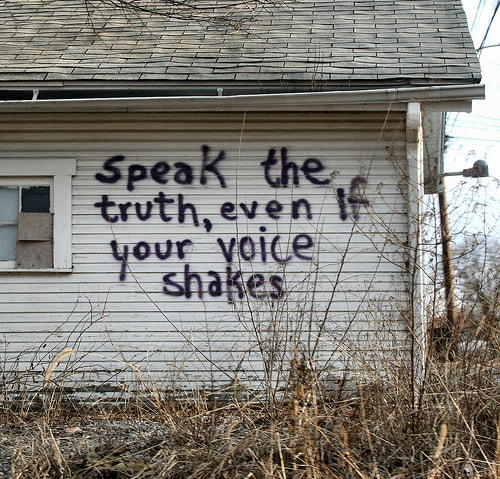
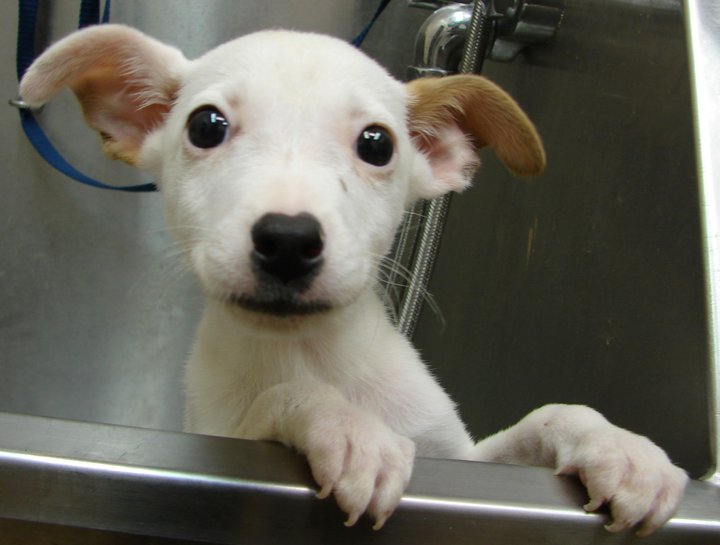
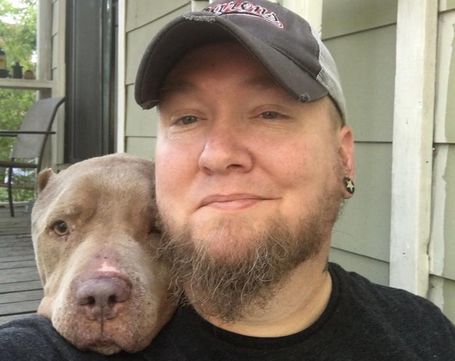

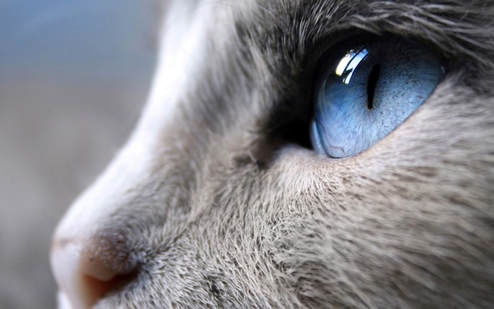
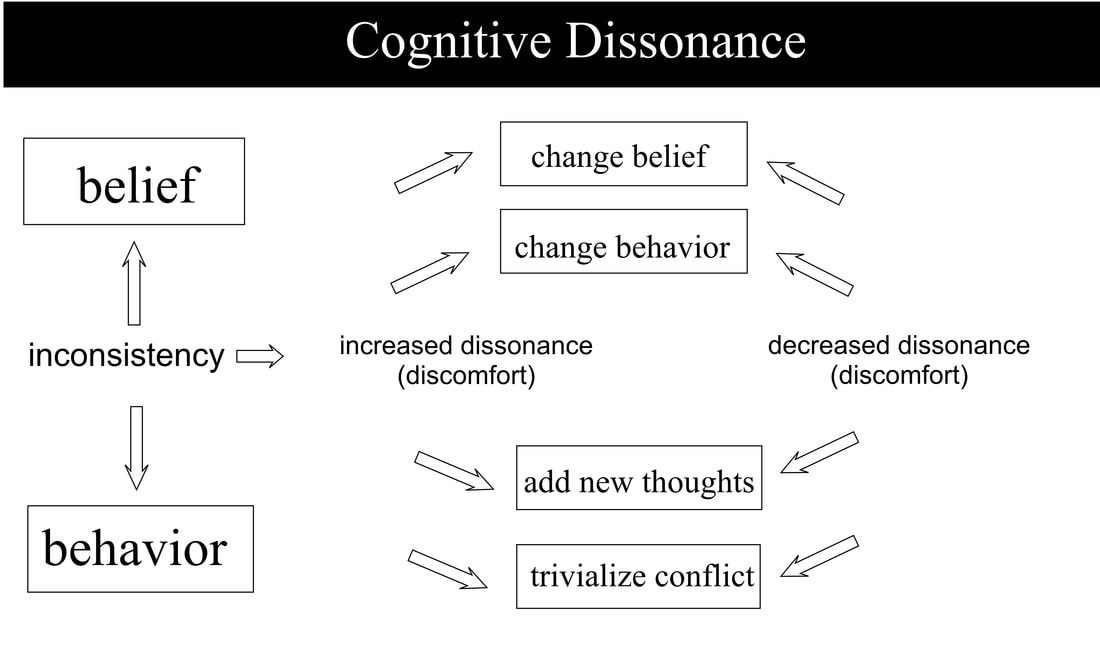

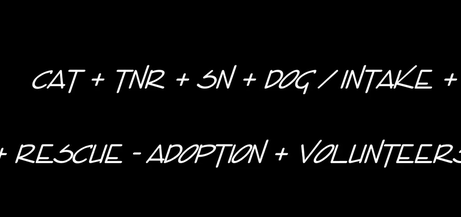


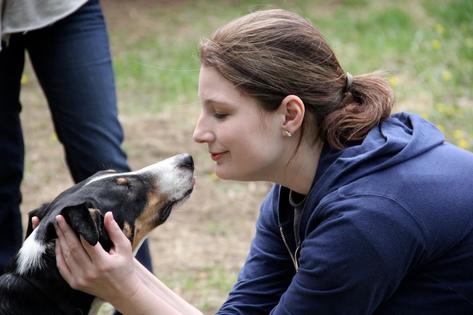



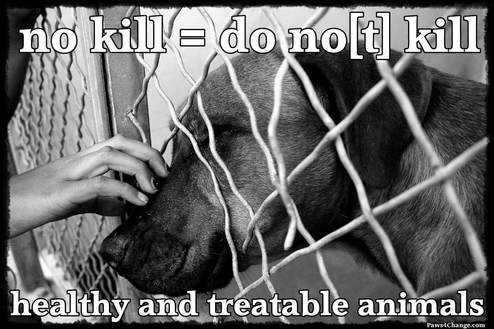
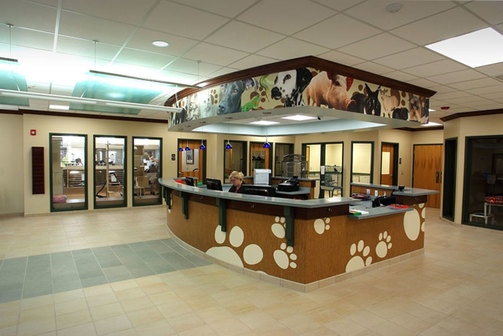


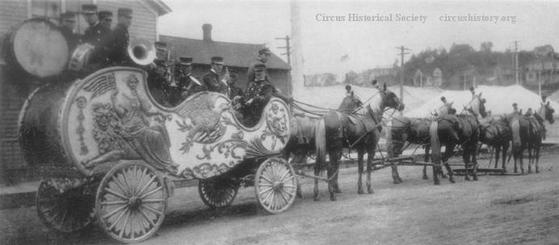
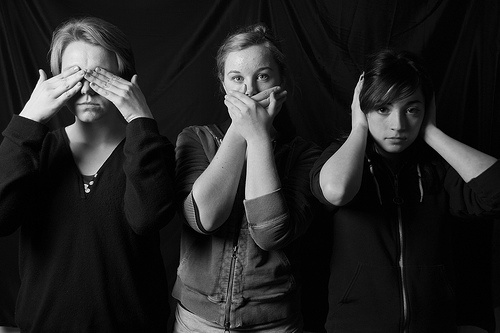
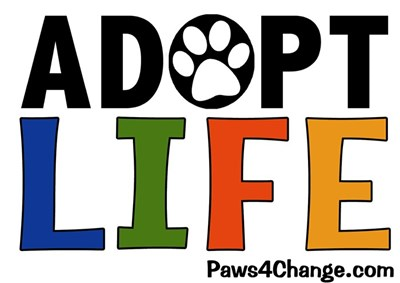

 RSS Feed
RSS Feed